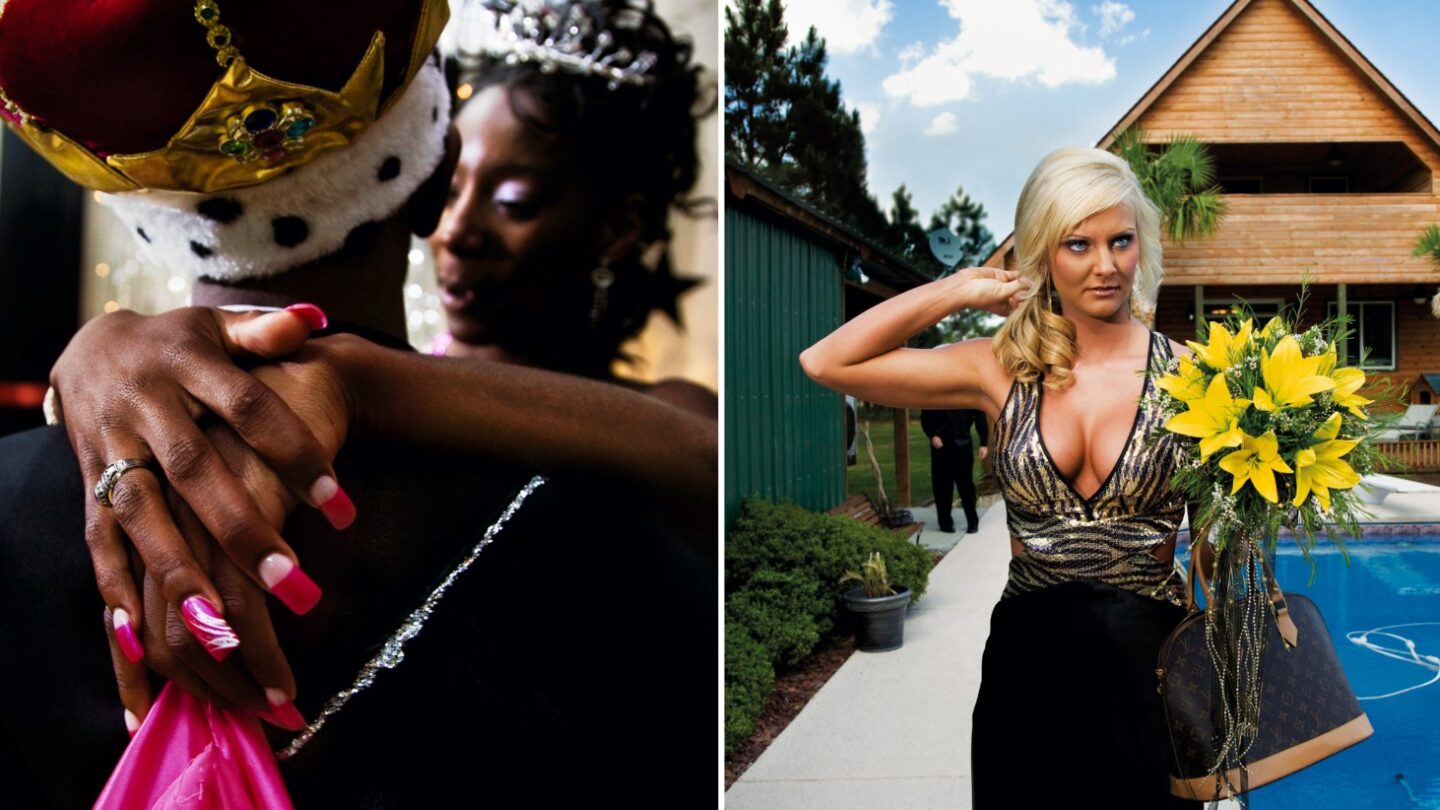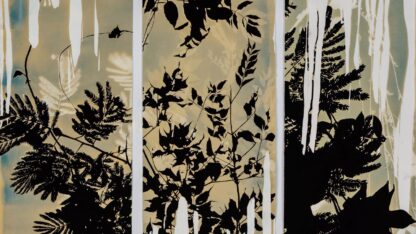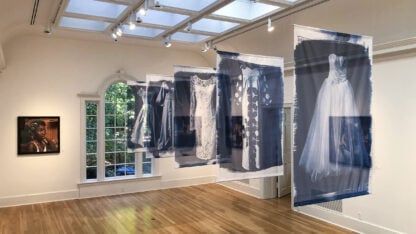“Southern Rites,” a new exhibition at the Atlanta Contemporary, spotlights segregated proms in South Georgia. The photos were not taken in the 1950s; they date from the early- to mid-2000s. The works are by photographer and filmmaker Gillian Laub and have been featured in other forms, including a book and a documentary that aired on HBO in 2015. Laub joined “City Lights” host Lois Reitzes via Zoom to discuss her experience documenting race for the last two decades.
Interview highlights:
In South Georgia, a relic of segregationist convention:
“Back in 2002 … the editor at SPIN Magazine reached out to me and said, ‘Oh my goodness, I just received a letter, a handwritten note from a student in Montgomery County, Georgia, begging us.’ It was really a cry for help saying, ‘Please, come to my community. I can’t take my boyfriend to the prom because he’s Black; I’m white. They’re still having segregated proms in my town. Please come and tell this story.’ So that’s how we heard about it, through … Anna Rich Chafin, who wrote the original letter,” recounted Laub.
“It was shocking, and then I felt, ‘Wow, I’m really naive.’ Look, racism is everywhere in our country. Obviously, it’s in New York as well. But this type of overt racism I had never experienced and I didn’t know still existed really,” said Laub. “At the same time, it was a really friendly town and it seemed on the surface like it was very mixed and kind of like an idyllic, beautiful Southern town. So it was just so contradictory, the fact that they were actually segregating by race and it seemed from the outside that people were walking around happy and okay with it.”
Organizer rationales and student reactions:
“They began as separate [prom] events because when you’re voting on the ballot, there’s literally a column for a ‘white Queen’ and ‘Black Queen.’ And at first, the teachers were doing it in a way that they wanted it to be fair and it was originally done, as I was told, in a democratic way,” explained Laub. “They didn’t want the winner always to be white, so they were like, ‘Okay. We will always have a white and a Black queen when we integrate.’ That was their way of trying to make the integration go smoothly, but they kept up this ‘tradition,’ as they called it.”
“They discovered that none of the white students would come to the prom; they would have their own separate, private prom. So then the schools just opted out and stopped being involved in the organizing of the prom, so the reason why it wasn’t illegal was because the proms were essentially private. And it would so happen that the white parents would pay for the white prom, and the Black students said that they had to spend many months fundraising for their prom.” Laub added, “I felt very welcomed with open arms to the Black proms I attended … These kids went to school together from when they were in kindergarten, so they knew and felt that it was really wrong.”
A moment captured after the proms finally integrated:
“There’s a picture that I took on the dance floor in 2011, and there’s just complete and utter joy,” said Laub. “They’re just dancing. It seems like such a normal picture of teenagers dancing, but to me, it’s so much more loaded than that because it’s like, this is what was being prevented for so many years, what seems so normal and — I don’t want to say mundane, because joy is not mundane — but something that seems so common was forbidden.”
On Laub’s HBO documentary film showcasing the “Southern Rites” photos and story:
“I wasn’t setting out to make a film, but look, I knew the proms were a symptom of something much larger in this town,” Laub said. “There was something about having so many conversations with people and interviewing people that I felt like a film — even though I didn’t know how to make a film — was the way to convey this nuanced and complicated story.”
“Something tragic happened when I started filming; there was a racial killing in the town,” Laub recalled. “So the film ended up, really, becoming about that case. And I was telling the story about race now through the tragic killing of Justin Patterson, who was somebody whose family I knew from photographing the proms.”
“Southern Rites” is on view through Jan. 8 at the Atlanta Contemporary. More information is available at atlantacontemporary.org/exhibitions/gillian-laub.









